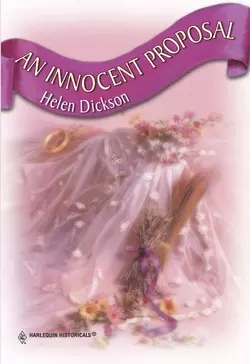An Innocent Proposal

Хелен Диксон
Тип: электронная книга
Жанр: Современная зарубежная литература
Язык: на английском языке
Стоимость: 152.29 ₽
Статус: В продаже
Издательство: HarperCollins
Дата публикации: 16.04.2024
Отзывы: Пока нет Добавить отзыв
О книге: Mistress for a night…Lord Dunstan found Miss Louisa Fraser captivating, though she was another man′s mistress. He couldn&##39;t have been more startled–or pleased–when she offered herself for one night of passion if he would save her and her misguided brother from financial ruin. So, on the appointed night, Lord Dunstan received the shock of his life. His bewitching miss was a virgin!Beloved wife for eternity…What started out as an innocent proposition turned into a marriage of convenience where neither party could trust the other. Would the birth of their child and imminent danger bring these two lost souls to a confession of their soul-searing love?